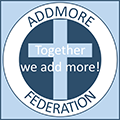LGBTQ + 2023-2024
For a child to thrive, we believe that school should be a place where everyone feels that they, and their family are valued and where the environment reflects the world in which they are growing up. We are all are living in an increasingly diverse society and today’s children are likely to have experiences of LGBTQ+ within their own families, friends and through what they see on social media. To reflect this, as part of the statutory guidance, we ensure that the ‘needs of all pupils are appropriately met, and that all pupils understand the importance of equality and respect.’ This includes ‘teaching about different families, which can include for example: single parent families, LGBT parents and carers, families headed by grandparents, adoptive parents, foster parent/carers amongst other structure.’ We also have a duty under Equality Act 2010 to ensure that no child is discriminated against because of their protected characteristic. Our approach to equality and diversity ensures we provide an environment which is inclusive and that all pupils develop and awareness and understanding of protected characteristics.
Inclusivity is much more than just teaching about different families as part of an RSE lesson, it is an overarching, fundamental ethos which ensures that our Federation is representative of all pupils and their families which is reflected within our RSE policy, PSHE/RSE curriculum, SMSC, Fundamental British Values and school ethos. We believe that teaching about LGBTQ+ should not be a stand-alone lesson but should be integrated into the curriculum, sensitively and in an age-appropriate manner. This means planning and delivering our lessons in a way that ensures that every child in the classroom recognises themselves in the content and it is delivered in a way where every child feels safe and confident to participate. Our PSHE/RSE curriculum has been specifically designed to encourage children to explore this topic by subtly threading inclusivity throughout the programme. We then have the autonomy to expand on the content, dependent on the needs of the pupil cohort. There are many other things that we do as a Federation to promote inclusivity, from displaying posters reflecting a range of diverse images, to including storybooks that talk about same sex parents or challenge gender stereotypes. We are mindful of the language that we use, for example, when talking about marriage remember to include same sex couples and avoid talking about ‘boyfriends’ and ‘girlfriends’ instead using the term ‘partner’.
Parents can support the school by understanding how inclusivity and diversity are embedded in the teaching and learning and that this forms an integral part of statutory relationships education.
As a faith school how will we embed this guidance?
How can faith schools embed this new guidance may be a question you have.
Many schools already doing LGBTQ-inclusive teaching, along with tackling and preventing homophobic, biphobic and transphobic bullying, are faith and church schools.
The Public Sector Equality Duty requires all schools to eliminate discrimination, advance equality of opportunity, and foster good relations between people. And the Equality Act 2010 lists ‘gender reassignment’ and ‘sexual orientation’ as protected characteristics, as well as religion or belief. This means that all schools have a duty to make sure that their students are not discriminated against, either because of their faith and/or because they are LGBTQ+.
It’s vital to work as a church school to ensure that LGBTQ+ people of faith don’t face extra stigma for being who they are.
For more information on LGBTQ+ faith groups, see the below websites:
LGBTQ+ Muslim groups, Hidayah and Imaan. You can also contact the Muslim Youth Helpline.
LGBTQ+Jewish group, Keshet UK.
LGBTQ+Christian group, One Body One Faith
LGBTQ+ Catholic group, Quest.
LGBTQ+ Terminology
The world in which children are growing up is becoming increasingly more diverse, and our Federation has pupils from different ethnicities, cultures, faiths, families, sexualities, and genders identities. It is vitally important that all children see themselves and their families represented in what they learn, in the resources that support our curriculum, and the language that we use. The guide below will explain some of the LGBTQ+ definitions you may or may not be familiar with which will support you to feel more confident to use the correct terminology to promote inclusion, understanding and acceptance.
For more information about LGBTQ+ inclusive primary schools, Stonewall have produced a helpful guide, which can be downloaded from: Stonewall - Getting Started Toolkit - Primary Or, for early years and foundation stage: Stonewall - Getting Started Toolkit - Early Years and Foundation Stage Talking with parents.

